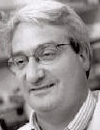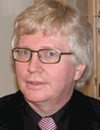|
Vaccine Development and Manufacture |
| |
09:30 |  | Keynote Presentation Engineering Immune Potent DNA Vaccines for Difficult Pathogens
David Weiner, Professor/Chair, University of Pennsylvania, United States of America
DNA vaccines are an important novel vaccine technology, however the immune responses induced by past generations of DNA vaccines were poor in larger species including nonhuman primates and humans. We have recently utilized a combination of technologies for plasmid optimization, combined with enhanced EP delivery to dramatically improve the immune potency as well as ease of delivery of this platform. We will provide examples in nonhuman primates and report on progress in the clinic of this important enhanced platform. These studies have important implications for the new vaccine approaches to difficult pathogens. |
|
10:00 | Vaccine Strategies to Induce a Broad HIV CD8 T Cell Response
Steven Patterson, Senior Research Fellow, Imperial College, United Kingdom
The ability of HIV to mutate rapidly and escape immune recognition requires novel approaches to vaccine design. I will describe a vaccine strategy designed to induce CD8 responses against multiple epitopes and overcome the problem of immune escape. |
10:30 | Coffee Break and Networking in the Exhibition Hall |
11:15 | Advances in Meningococcal Vaccines
Ray Borrow, Head, Health Protection Agency, United Kingdom
Conjugate vaccines for meningococcal serogroups A, C, Y and W135 are now licensed whilst vaccines for serogroup B are well progressed in development. Issues including the necessity of booster doses for conjugate vaccines and current status of serogroup B vaccines will be presented. |
11:45 | Dynamics of Influenza A virus Replication in Mammalian Cell Culture
Udo Reichl, Professor, Max Planck Institute, Germany
In the next decades mammalian cell culture-derived influenza vaccines will play a crucial role in control of seasonal disease and pandemics response planning. Here, an overview is given on the dynamics of influenza A virus propagation in MDCK cells cultivated in bioreactors. |
12:15 | Lunch and Networking in Exhibition Hall |
13:15 | Poster Viewing Session |
14:15 | Development of Inactivated Polio Vaccine using Attenuated Sabin Poliovirus Strains for Clinical Studies and Technology-Transfer Purposes
Wilfried Bakker, Senior Research Scientist, Netherlands Vaccine Institute, Netherlands
A production process for Sabin-inactivated polio vaccine (Sabin-IPV) is being developed. For that, a scale-down – scale-up strategy was followed, initially using historical Salk-IPV manufacturing data. Using a lab-scale model, the process was developed up to production-scale and used to generate clinical lots. Technology transfer to manufacturers in low income countries is foreseen. |
14:45 | New Concept for Next Generation of Vaccine Facilities
Klaus Hermansen, Senior Specialist, NNE Pharmaplan, Denmark
There is a Global need for more affordable vaccines especially for the emerging countries. This presentation will give a introduction to a new concept for modern flexible vaccine facilities that can generate a platform for lowering the cost of manufacturing of vaccines. By combining Standardisation with the use of Single use technology and Modular engineering and construction it is possible to lower the cost of a new vaccine facility by 40-50%. The topic will be presented as a case story. |
15:15 | Coffee Break and Networking in the Exhibition Hall |
16:00 | Lost in Translation? - The Missing Links from Academic Research to Clinical Trials in the Vaccine Field
Sarah Moyle, Head, University of Oxford, United Kingdom
Translational research and technology transfer is a minefield of problems waiting to explode. Even the overall meaning of the term translational research means different things to different people which can also cause an additional layer of confusion. The talk will focus on translational research in general and how this challenging area is being addressed at the University of Oxford's Jenner Institute’s vaccine programme. Here likely vaccine candidates emanating from the academic research base are manufactured by a translational academic group for use in an academic led first in man clinical trials. |
16:30 | Vaccine Development: Leveraging Alternative Expression Systems in the Development and Manufacture of a Human Hookworm Vaccine
Jordan Plieskatt, Director, Analytical Development and Formulation, The George Washington University/Sabin Vaccine Development, United States of America
Alternative expression systems are beginning to provide suitable alternatives to difficult to express recombinant proteins. These systems, specifically Nicotiana benthamiana, while presenting their own challenges including host cell proteins, have enabled the development of a human hookworm vaccine. |
17:00 | Close of Conference |

